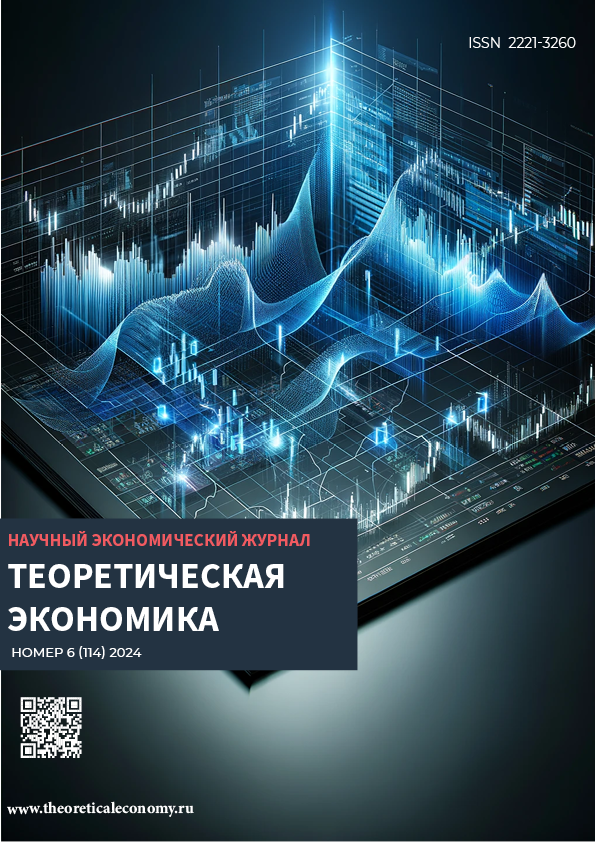Yaroslavl, Yaroslavl, Russian Federation
Yaroslavl, Yaroslavl, Russian Federation
It is shown that the transition from a linear model of the economy to a circular one should be considered from the point of view of a systematic approach, the elements of the transformation system are highlighted. It is revealed that the task of management is to form a large-scale ecosystem characterized by high efficiency of operations for monitoring, collection and recycling of waste. A toolkit for the transition to a circular economy model is presented, which allows modeling the processes of resource use and waste disposal and thereby reducing the growth of negative externalities. It is shown that the transformation of the linear model of the economy into a circular one will require consolidated solutions in the field of digital technologies, logistics, recycling and waste disposal technologies.
circular economy, transformation, systematic approach, ecology, recycling, recycling, tools
1. Potrebitel'skiy rynok Rossii: itogi 2023 g. – perspektivy na 2024 g. Doklan TPP Rossii, gl. 3 ot 05.04.2024.
2. Abramov A., Akimov M. Tverdye bytovye othody (TBO) //Ekologicheskie problemy Rossii i mira, svyazannye s tverdymi bytovymi othodami. - Elektronnyy resurs. https://www.kp.ru/family/ ecology/tverdye-bytovye-otkhody/. Data obrascheniya (13.05.2024)
3. Reyting stran po ekologii v 2023-2024 godu. Oficial'naya statistika. Elektronnyy resurs https://visasam.ru/emigration/vybor/ekologiya-v-stranah-mira.html. Data obrascheniya (14.05.2024)
4. Amirova N., Kondrat'eva Ya. Instrumenty i metody vnedreniya cirkulyarnoy ekonomiki// Postsovetskiy metrik. - 2022. – 19 s.
5. Horoshavin L.B., Belyakov V.A., Svalov E.A. Osnovnye tehnologii pererabotki promyshlennyh i tverdyh kommunal'nyh othodov// Ekaterinburg: Izd-vo Ural'skogo universiteta. 2016. - 220 s.
6. Ponomarev K. S., Feofanov A. N., Grishina T. G. Cifrovoy dvoynik predpriyatiya kak instrument cifrovoy transformacii proizvodstv // Cifrovaya ekonomika: oborudovanie, upravlenie, chelovecheskiy kapital: Materialy konferencii. - Vologda, 2018. S. 73-76
7. Kalimbet E. Yu. Ekonomicheskaya suschnost' tehnologii blokcheyn // Ekonomicheskaya bezopasnost' sportivnoy industrii. – 2018. – S. 29-33
8. Ognivcev S. B. Cifrovizaciya ekonomiki i ekonomika cifrovizacii APK // Mezhdunarodnyy sel'skohozyaystvennyy zhurnal. - 2019. - № 2. S. 77-80
9. Karenov R. C., Bekishev K. B. Biotehnologiya: ee rol' i mesto v nauchno-tehnicheskom progresse //Vestnik karagandinskogo universiteta. Ser. Biologiya. Medicina. Geografiya. - 2018. - № 3 (91). – S. 53-57
10. Shuaib M., Haleem A., Kumar S., Javaida M. Impact of 3D Printing on the environment: A literaturebased study // Sustainable Operations and Computers. -2021. - № 2. R. 57-63
11. Markin, M. I. Ekonomicheskie podhody k pererabotke othodov: analiticheskoe issledovanie. – 2024. – № 12(161). – S. 834-837. – DOIhttps://doi.org/10.34925/EIP.2023.161.12.161. – EDN FKUFFB.
12. Markin, M. I. Primenenie nechetkogo SWOT-analiza pri razrabotke marketingovoy strategii kompanii / M. I. Markin // Ekonomika i predprinimatel'stvo. – 2024. – № 7(168). – S. 1391 -1394
13. Kulikova M.S., Arustamov E.A., Levakova I.V. Ekologiya i obraschenie s othodami v Yaroslavskoy oblasti // Internet-zhurnal «NAUKOVEDENIE» Tom 9, №6 (2017) https://naukovedenie. ru/PDF/110EVN617.pdf (dostup svobodnyy)
14. Rony Medaglia. Digital government and the circular economy transition: An analytical framework and a research agenda / Rony Medaglia, Boriana Rukanova, Ziyan Zhang // Government Information Quarterly 41 (2024) 101904
15. Ryazanova Olesya Evgen'evna, Kuznecova Dar'ya Sergeevna CIRKULYaRNAYa EKONOMIKA KAK MEHANIZM PREODOLENIYa EKONOMIChESKOGO KRIZISA 2020 // Teoreticheskaya ekonomika. 2021. №5 (77). URL: https://cyberleninka.ru/article/n/tsirkulyarnaya-ekonomika-kak-mehanizmpreodoleniya-ekonomicheskogo-krizisa-2020.
 This work is licensed under Creative Commons Attribution-NonCommercial-NoDerivatives 4.0 International
This work is licensed under Creative Commons Attribution-NonCommercial-NoDerivatives 4.0 International


















